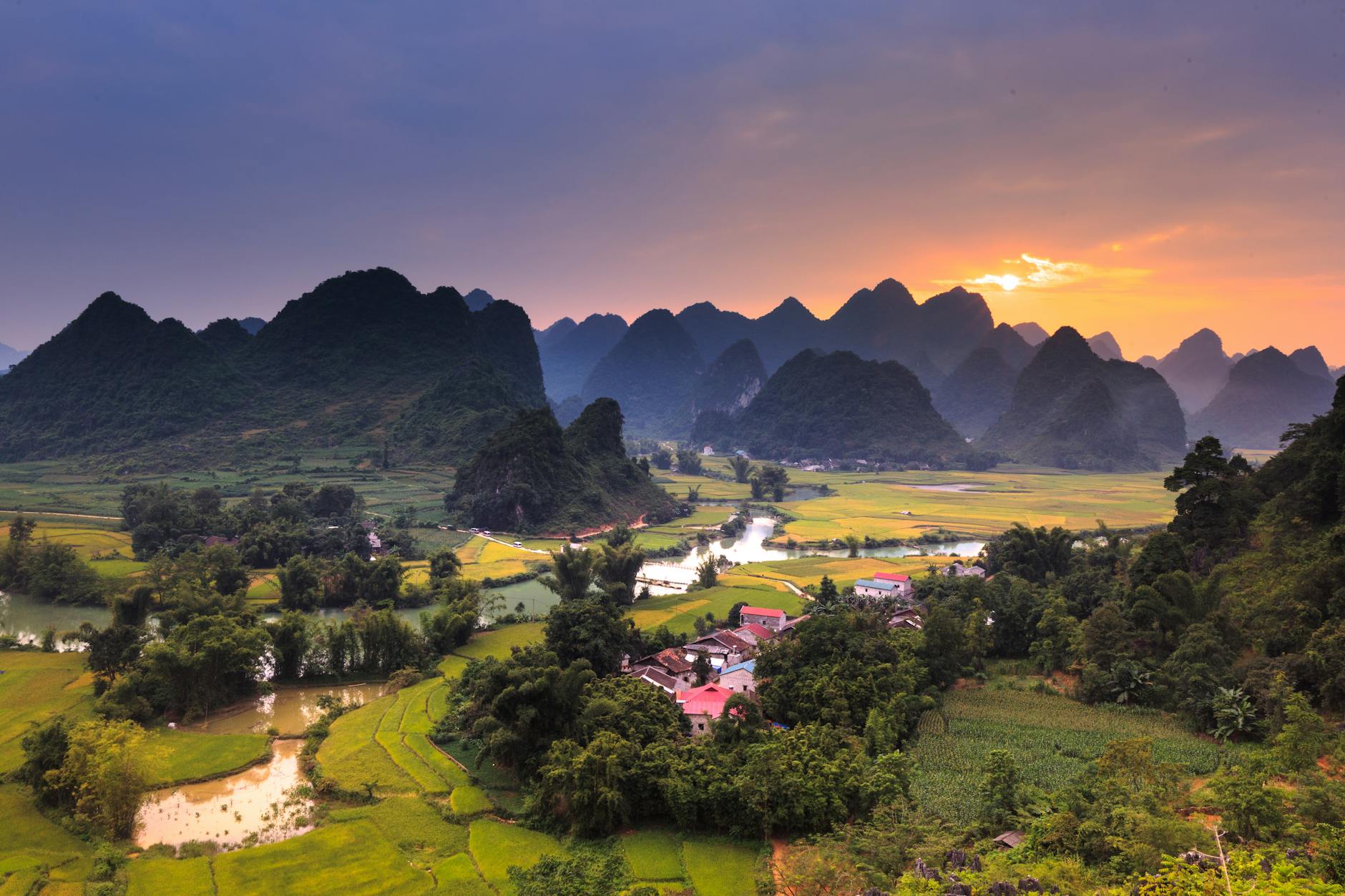Why Australia is a Perfect Destination for Eco-Conscious Travelers

Diverse Natural Ecosystems
Australia offers some of the world's most captivating natural ecosystems, making it a premier choice for eco-conscious travellers. The variety and uniqueness of the country's flora and fauna are nothing short of astounding. With species found nowhere else on Earth, like the vibrant birds and diverse mammals, enthusiasts can immerse themselves in nature’s marvels. This is much like the feeling you get when visiting the lush Brisbane Botanic Gardens, where every corner reveals a new botanical secret.
When it comes to protected national parks, Australia does not disappoint. These parks are sanctuaries for many endangered and rare species. Much like the efforts seen at the Lone Pine Koala Sanctuary, they focus on preserving biodiversity. By offering well-maintained walking trails and informative tours, these parks invite visitors to appreciate nature without disrupting it.
Vibrant marine life thrives in the waters surrounding the continent, a paradise for those interested in marine conservation. The colorful Great Barrier Reef serves as a stunning example of marine biodiversity. Engaging in responsible diving and snorkelling activities here can be an enlightening experience, similar to learning about eco-friendly initiatives at South Bank Parklands.
For those fascinated by africa tours, the Australian wilderness offers a different yet equally enriching experience, allowing you to witness unique ecosystems and conservation efforts in a sustainable manner. Whether you're interested in gorilla trekking Uganda or a Kenya safari, Australia's natural attractions provide an eco-friendly adventure that's just as compelling.
Sustainable Travel Options
Eco-Friendly Accommodations
In Australia, eco-friendly accommodations offer a chance to enjoy stunning natural surroundings while minimizing environmental impact. Many places are designed with sustainable practices, such as solar energy use and water conservation systems, to make your stay guilt-free. When you visit the Brisbane Botanic Gardens, for instance, you can check into nearby lodgings that use local materials and support local communities, fostering an authentic connection to the area.
Responsible Tour Operators
Choosing responsible tour operators can uplift your travel experience, ensuring both enjoyment and environmental sustainability. Known for their commitment to namibia safari experiences that preserve ecosystems, such operators maintain ethical standards and often contribute to local conservation efforts. These companies offer tours that tread lightly on the land while providing rich educational insights about the environment, enabling you to appreciate the conservation efforts reminiscent of those you’d observe on Galapagos Islands tours.
Green Transportation Methods
Sustainable travel extends to how you move while exploring new destinations. Australia offers numerous green transportation methods, from electric vehicles to well-organized cycling paths. When planning your itinerary, also consider public transit options; they not only reduce carbon emissions but also provide you a glimpse into local life. By choosing green transport, you align your travels with sustainable principles, allowing you to enjoy your journey while protecting the precious landscapes you explore.
Tech Innovations in Eco-Tourism
Eco-Apps for Travelers
Eco-tourism isn't just about visiting natural wonders; it's about making informed decisions that benefit our planet. By leveraging eco-apps, travelers can effortlessly integrate sustainability into their adventures. Imagine using an app to locate the most eco-friendly routes or accommodations while enjoying the serene landscapes. One exceptional example is how such apps can guide you through Galapagos cruise, ensuring your travels are gentle on the ecosystems you're exploring. It’s like having a digital guide that keeps you informed about the environmental impact of your choices, making the whole process seamless and engaging.
Use of Renewable Energy
Harnessing renewable energy in tourism is a game-changer. Many destinations, including tours in South America, are tapping into solar and wind energy to power their operations sustainably. As you plan south american tours, opt for operators who prioritize renewable energy. This commitment not only reduces carbon emissions but also ensures that the pristine environments remain unspoiled for future visitors.
Conservation Technology Projects
Modern technology is pivotal in conservation efforts. Emerging tools like drones and sensor technologies help monitor and protect endangered species. These advancements facilitate precise data collection, ensuring proactive measures can be applied promptly. If you're in Brisbane, like me, visiting the eco-friendly initiatives at South Bank Parklands can provide a glimpse into how urban spaces incorporate technology to promote sustainability. By embracing these innovative solutions, we can all contribute to preserving the natural beauty of our beloved tourist spots.
Cultural Experiences
Indigenous Learning Tours
Immersing yourself in indigenous learning tours can offer a profound understanding of Australia's rich cultural heritage. Many tours focus on indigenous traditions, storytelling, and connections to the land, which is paramount for an eco-conscious traveller like myself. These experiences are not only enlightening but also emphasize sustainable practices that respect the environment, aligning well with my values.
Authentic Rural Communities
Venturing into Australia's authentic rural communities provides a chance to see sustainable living in action. These communities often embrace eco-friendly practices, offering insights into simpler, sustainable lifestyles. Engaging with local artisans and farmers enriches your journey while supporting these communities economically and culturally, ensuring that tourism benefits everyone involved.
Sustainable Culinary Practices
Exploring sustainable culinary practices is one way to connect with local cultures while travelling. Many eateries emphasize farm-to-table concepts, ensuring that food is locally sourced and environmentally friendly. It's refreshing to see how local chefs blend tradition with sustainability, creating dishes that are both delightful and responsible. Such initiatives reflect the broader movement towards eco-friendly travel and sustainability.
For those of us interested in exploring regions like Central America, similar sustainable travel options are emerging in areas such as central america tours and african tours. Leveraging eco-conscious practices, these tours often highlight genuine cultural exchanges while safeguarding natural beauty.
Best Practices
Minimizing Carbon Footprint
When exploring the incredible landscapes of Australia, such as the verdant Brisbane Botanic Gardens or the captivating Lone Pine Koala Sanctuary, it's essential to embrace low-impact travel methods. Opt for green transportation options like cycling or solar-powered ferries to glide along the Brisbane River. Consider staying at eco-friendly accommodations that implement energy-efficient practices, making it easier to collectively reduce our environmental impact. As we journey between destinations, planning trips that involve train travel or electric vehicle rentals not only helps in minimizing the carbon footprint but also contributes to a more sustainable travel experience.
Supporting Local Economies
Emphasizing support for local economies is a cornerstone of sustainable travel. By choosing to purchase goods from local artisans and dining at neighborhood eateries, we directly benefit communities in regions like South Bank Parklands in Brisbane, which has spearheaded various eco-initiatives. Engaging with local businesses maintains the vibrancy and economic resilience of these areas, ensuring that the charm and culture of destinations endure for generations to come.
Participation in Conservation Efforts
Dive deeper into the eco-conscious travel mindset by participating in conservation activities. Engaging with indigenous learning tours not only enriches our understanding of Australia’s heritage but also supports initiatives that aim to protect natural ecosystems. Volunteering for projects like native reforestation or wildlife conservation provides a tangible way to give back to the environment. Every effort counts in ensuring the sustainability of these breathtaking ecosystems, whether it's the unique flora and fauna or the vibrant marine life found throughout the region.


